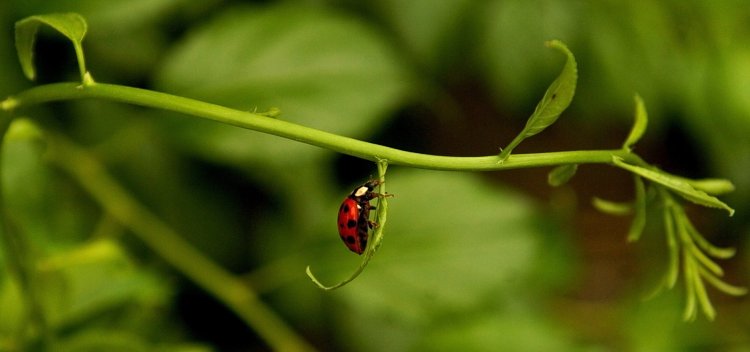No matter what you do, insects and diseases will attack your plants. Some, like Japanese beetles, Colorado potato beetles, aphids and tomato hornworm, are annual visitors. Others can show up by surprise. I handpick the Japanese beetles – which, thankfully, have been less prevalent in the past five years or so – then drown them in a pail of soapy water. My wife and I almost never use pesticides, even those approved for use on organic gardens, because even organic pesticides kill good bugs as well as the bad ones. And speaking of organic, among the benefits of being a member of the Maine Organic Farmers and Gardeners Association are the group’s monthly pest reports, written by MOFGA crop specialist Caleb Goossen. These let you know whenever a pest is coming to Maine – usually from the south – so you can prepare for them.
The best way to handle the bad bugs is to make sure your garden has good bugs that will eat the bad bugs. A UMaine Cooperative Extension bulletin, Beneficial Insects and Spiders in Your Maine Backyard, notes that a whopping 97 percent of insects and their kin are beneficial. To attract the good bugs – tachinid flies, ladybugs, spiders and other small creatures that eat the even smaller creatures that eat your plants – add plants that those creatures like, such as alyssum, dill, Queen Anne’s lace, asters and marigolds.
In addition, plant a variety of noncultivar native plants that will attract the bees, butterflies and hummingbirds that can pollinate your plants. Cultivars of natives are not has helpful because sometimes the flowers created by crossbreeding aren’t what the wildlife is used to. Be sure to have some natives in blossom all through the season so these pollinators will never want to leave your yard.
— TOM ATWELL
Send questions/comments to the editors.



Success. Please wait for the page to reload. If the page does not reload within 5 seconds, please refresh the page.
Enter your email and password to access comments.
Hi, to comment on stories you must . This profile is in addition to your subscription and website login.
Already have a commenting profile? .
Invalid username/password.
Please check your email to confirm and complete your registration.
Only subscribers are eligible to post comments. Please subscribe or login first for digital access. Here’s why.
Use the form below to reset your password. When you've submitted your account email, we will send an email with a reset code.